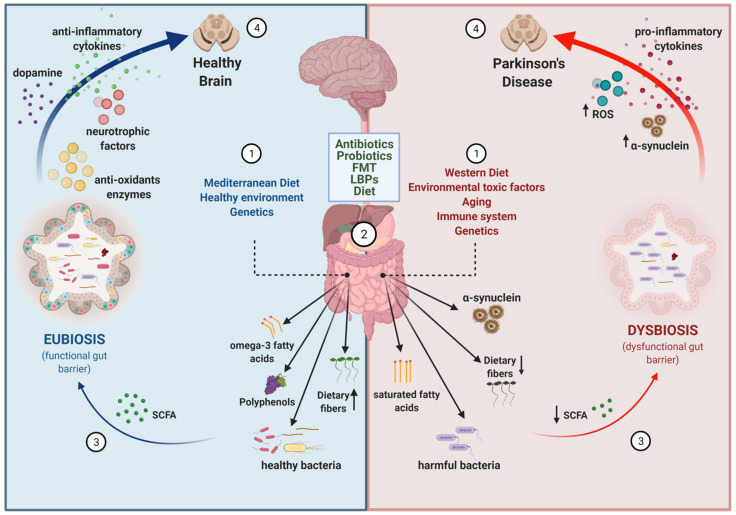Figure 1.
Disease-modifying strategies based on the gut microbiota. (1) The gut microbiota composition is influenced by several intrinsic (i.e., genetics, aging and immune system function) and extrinsic factors, including dietary habits (e.g., Mediterranean diet vs. Western diet) and environmental conditions (e.g., healthy environment vs pesticides/polluted environment). (2) Several strategies can be used to modify the composition of the gut microbiota to revert a dysbiotic condition: antibiotics, probiotics, fecal microbiota transplants (FMT), live biotherapeutic products (LBP), and dietary factors. (3) As a result, the balance between healthy/harmful bacteria, the presence of dietary fibers, the levels of metabolites with anti/pro-oxidant and anti/pro-inflammatory properties (e.g., omega-3 fatty acids, polyphenols, short chain fatty acids (SCFA), saturated fatty acids), and the aggregation of proteins like α-synuclein in the gut will be modified. (4) Because of the existing communication between the gut and the brain, these changes in the gut may have a direct impact on brain function through different mechanisms: levels of neurotransmitters, cytokines, reactive oxygen species (ROS), neurotrophic factors, and aggregation of α-synuclein. Overall, changes of the gut microbiota composition can have a beneficial or detrimental impact on the neurodegenerative process occurring in Parkinson’s disease.

